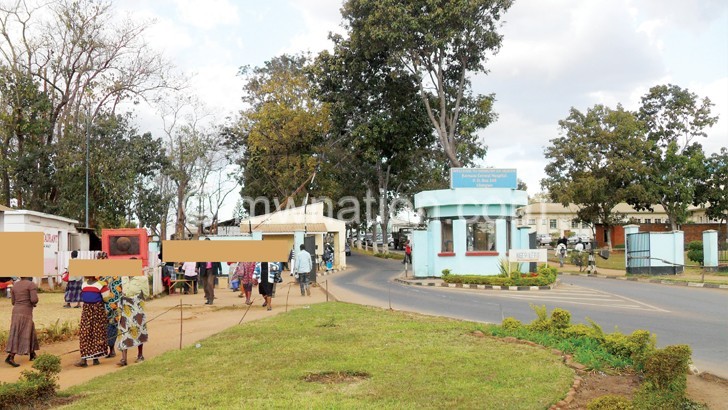Cashing in on the dead
The mortuary is one scaring part of the hospital. It brings death closer to the living.
It is usually somber and quiet on a good day, and on a bad one, there is an assembly of grief-stricken voices. But amidst sorrow and grief at Kamuzu Central Hospital in Lilongwe, one has to come out tough to negotiate hard with mortuary attendants just to have their dead loved ones bathed and embalmed.

Essentially, mortuary services, like other services at the referral hospital, are free in line with the government policy and universal health coverage. But while health activists bemoan that commercialisation of services at the mortuary disadvantages the poor, Ministry of Health concedes that while it does not approve the arrangement, nothing can be done to check the situation.
On one sad day, out of a group of mourners, the two of us had been appointed to witness embalming of the dead body of our departed colleague. Ignorant of the arrangement, we empty-handedly went inside a cold room, with our brother lying dead on the stretcher.
“Looking at the size of the body, we may need more chemicals to preserve it. So you must pay K60 000 before we commit to do the job,” demanded one of the two mortuary attendants, so much to our surprise for we thought these are free services at a public hospital.
“We charge because it is not our job. We are doing someone’s job and mind you, the hospital has no drugs [chemicals] so we buy on our own to provide a service to people as a matter of helping the situation,” the attendant further said.
In a vox pop interview with some mourners at the mortuary, we established that they had all paid for the service. One of them said they had paid K35 000. The attendant justified the cost, saying the size of the body determines the cost. Our further investigations at three other hospitals revealed that paying for mortuary services has become a norm.
“We are providing a service and we must get paid. We buy the chemicals and you expect us to do it for free simply because someone has died?”retorted the mortuary attendant.
KCH director Jonathan Ngoma defends the charges, saying the attendants do someone’s job, hence, the charges.
“That’s not their job. We needed to have morticians and other technicians, but we do not have because the system does not think the mortuary is a priority. We prioritise patients and not the dead that’s why we have a situation where mortuary attendants are charging for a service which should have been free. Central Medical Stores stopped long time ago supplying us with chemicals [formalin] used to preserve dead bodies and attendants have taken advantage of the gap to provide the service at a fee. We cannot blame them for that,” said Ngoma.
However, health rights activist Maziko Matemba says no amount of reasoning would justify what he calls ‘illegal conduct’. He says the law provides for free services, hence, KCH is contravening the statutes. Matemba demands that the Ministry of Health should intervene and take to task the hospitals and all individuals behind this practice.
Malawi Health Equity Network (Mhen) executive director George Jobe wonders why the hospital is watching the mortuary attendants delivering private services using government space and equipment.
Activists may argue otherwise, but Ngoma insists it cannot change anything. He attributes the situation to poor mentality among policy holders.
“We make requests for the mortuary, but nothing happens. We have a wrong mentality. We think the mortuary is for the dead, therefore, it does not deserve attention,” he says.
Ministry of Health spokesperson Joshua Malango says embalming and preparation of the body for burial is not in the essential health package and, therefore, it should be paid for. He, however, admits that the paying arrangement is not in the policy, but rather unofficial system at owners’ risk.
“Some of these services such as bathing the corpse and embalming are done at the will of the relatives and the services are provided for by mortuary attendants at a fee. This does not involve the hospital management,” he says disputing Ngoma’s remarks that the prevailing situation is a culmination of system failure. n





